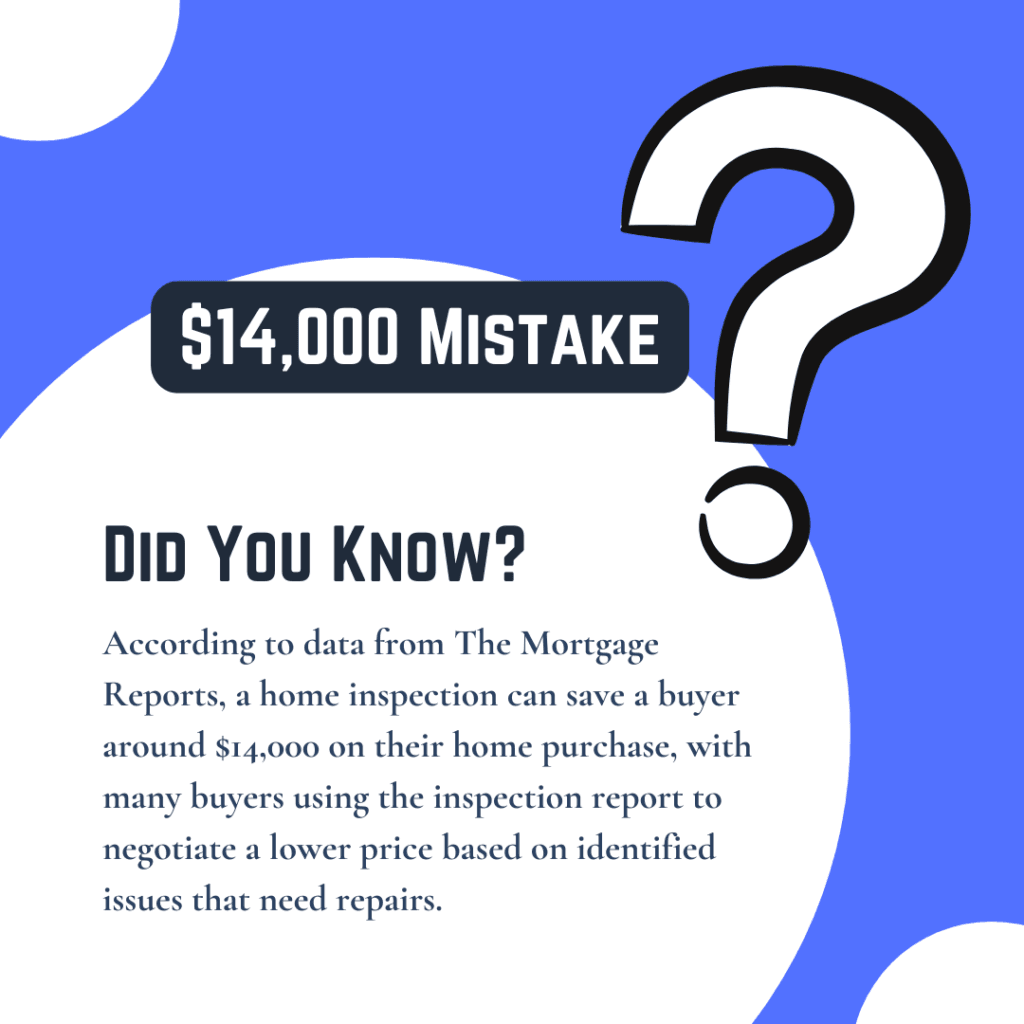Homebuyers typically submit purchase offers that are contingent on a satisfactory home inspection, yet some home buyers believe they’ll serve money by waiving a home inspection. Although home inspections are not mandatory for securing a mortgage loan, they are strongly advised as they provide crucial insights into the condition of a property. While a home may initially appear appealing, it could require significant and costly repairs. Many issues can be hidden beneath the surface and may not be detectable through a cursory walkthrough.
A home inspection is a non-intrusive assessment. Consequently, home inspectors do not open walls but thoroughly examine the property’s electrical, plumbing, and HVAC systems, in addition to the roof, foundation, attic, and other structural elements, for potential concerns. The inspection also includes a comprehensive review of the home’s appliances (such as the stove, washer/dryer, refrigerator, and water heater) to ensure proper functioning.
One thing, you probably didn’t know was that home inspections usually save the buyer money, because they are one of your most powerful negotiating tools.

Risks and Potential Costs of Waiving a Home Inspection
In a competitive housing market, you may feel pressured to take significant risks, including forgoing inspections in exchange for offering more than the asking price or requesting a quick closing. However, this approach is ill-advised. A property can outwardly appear sound, yet hidden issues may cause unforeseen complications.
For instance, an average buyer is unlikely to detect the presence of asbestos, recognize the signs of termite damage, or discover a leak in the HVAC system.
No matter how eager or emotionally invested you are in acquiring a home, it is essential not to forgo a thorough inspection. Envision this scenario six months down the line, after you’ve purchased and settled into the house. If you attempt to activate the heater only to find it inoperable, you may regret foregoing the inspection, especially if repairs could run into the thousands of dollars!
During a frenetic bidding war or while amidst a long house-hunting search, it can be easy to lose clarity. Avoid getting swept up in the excitement. Skipping an inspection could result in significant monetary losses. It is prudent to engage a qualified home inspector to conduct the inspection, as identifying key issues can be challenging for a layperson.
A certified home inspector can assist in identifying potential issues within your prospective home. For example, they may uncover signs of water damage or mold. An expert inspection may reveal that the roof of your new home may require replacement shortly. Alternatively, components like the water heater or air conditioning unit may also necessitate replacement.
Discoveries of this nature are not uncommon. If such issues arise during the inspection, the standard inspection contingency provides a mechanism for negotiating with the seller.
When both parties are eager to finalize a deal, such concerns are often addressed by the seller either undertaking repairs or providing credit to the buyer as compensation. Should an agreement not be reached, the inspection contingency allows you to retain your deposit.
If you choose to waive your inspection contingency, you assume full financial responsibility for the condition of the property and any repairs needed. While some resolutions may be straightforward and relatively inexpensive, more severe issues can potentially accrue thousands, if not tens of thousands, in additional costs associated with purchasing the home. A home inspection provides peace of mind but also can save you tons of money.
Conclusion
Foregoing a home inspection is a perilous gamble that could lead to unforeseen expenses in the future. To safeguard your interests, it is advisable to invest a few hundred dollars in hiring a home inspector, rather than facing thousands in repair costs after your move. Additionally, consider the added frustration you would experience—indeed, this is an experience you would want to avoid!


